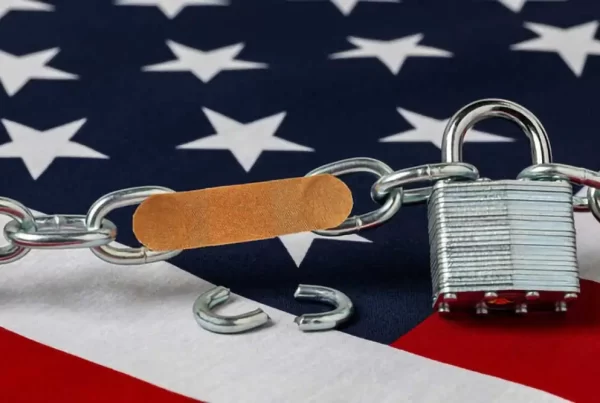A few weeks ago, Steven Camarota of the Washington-based think tank Center for Immigration Studies (CIS) presented a new report entitled “Jobs Americans Won’t Do? A Detailed Look at Immigrant Employment by Occupation”. The report, which was profiled in a front-page article in the USA Today on September 14, 2009, speaks to a couple of underlying truths which have yet to be addressed by this new administration: 1) The presence of immigrant workers in the American workforce is still a sore spot, and 2) To what extent will these workers be needed again when the economy turns around?
In the report, CIS examines the “before-and-after” scenarios of some of the meatpacking plants across the country that experienced work site raids by Immigration and Customs Enforcement (ICE). The report claims that despite staggering numbers of employees arrested at these plants during the raids, the plants were back up and running within a few months, thanks to the number of American-born or legal immigrant workers lined up and ready to assume positions that were commonly referred to as “jobs Americans won’t do.” Throughout the immigration debate, one of the sore spots for many Americans has been the idea that immigrant workers illegally present in the country were taking jobs away from Americans who were authorized to work, and, in the process, driving down wages for everyone. Throughout the 1990s and early 2000s, many groups quickly dismissed the allegations that immigrants were taking jobs away from Americans by claiming that the immigrants were doing jobs that Americans didn’t want: cleaning bathrooms, harvesting crops, constructing buildings, and slaughtering swine.
However, a closer look at the situation as a whole raises some new questions. Plant supervisors around the country have praised the work ethic of these immigrants, and many claim that the Latino immigrant workers far outlast American workers in slaughterhouse jobs. And everyone remembers the raid at the Agriprocessors plant in Postville, Iowa in May of 2008. The plant’s slaughter floor was largely staffed by undocumented immigrants, both Latino and Eastern European. After the raid, the plant all but shut down for lack of labor, among other issues. Even when the plant regained some momentum and was able to hire new workers, the workers they brought in were refugees from Somalia. Legal workers, yes, but not native-born Americans. This is not a unique scenario. Plants across the country have been filling the gaps with legal immigrants, primarily new arrivals, but still not native-born Americans.
The report does cite some instances where the American-born population has begun to assume these positions, but only fairly recently. After the Postville raid eighteen months ago, the plant still couldn’t find American workers to fill those jobs – even in America’s heartland (Iowa’s population is about 4% Hispanic). Today, the tides have changed a bit. The economy is in shambles, jobs are scarcer than they were a year ago, money is tighter, and after several months of being out of work, many Americans have realized that while slashing swine with a machete for twelve hours a day may not be ideal, it will put food on the table. As Mr. T. Willard Fair, President of the Urban League of Greater Miami puts it, “It has taken the greatest recession in a generation for poor Americans to line up to work in fields and factories. We’ll take anything now. We’re willing to be exploited for awhile.”
In short, Americans aren’t taking these jobs because they’ve had a sudden change of heart, they’re taking them because they don’t have a choice. But this brings to light another issue. What happens when the economy rebounds in a few years? What happens when those Americans who took plant jobs out of desperation find new, better-paying, more comfortable opportunities? Who will do those jobs then? This administration must examine the issues surrounding the number of H-visas available, for both skilled and low-skilled workers. As the American economy starts to rebound, we will need not only the best and brightest from around the world, but we will need to make sure we have enough labor to support the work that those people are doing.
Legal workers might be able to use the weak economy to their advantage for the moment, but the day will come when we will be right back where we started with undocumented workers, which means that now is the time to be thinking about these much-needed reforms, and how we can design them to benefit our growing economy.




